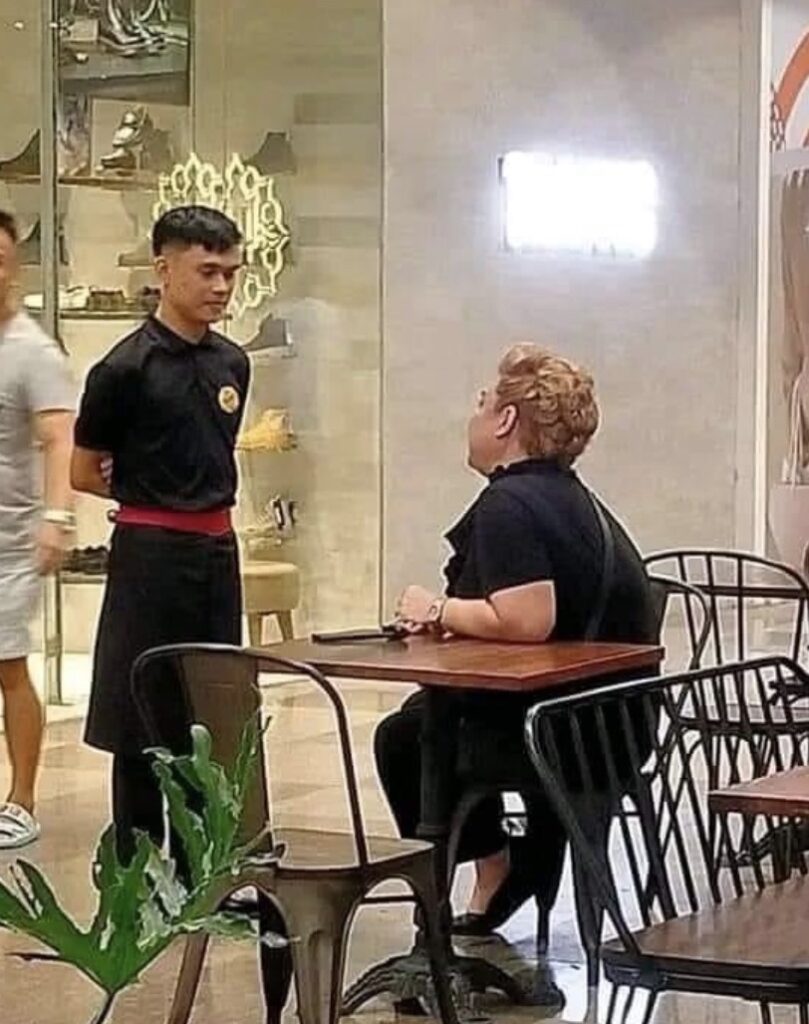The recent viral incident at Ulli’s Streets of Asia in Cebu has ignited a fervent debate on social media, highlighting the complexities and sensitivities surrounding gender identity and misgendering. The situation, where an LGBTQIA community member, Jude Bacalso, reprimanded a waiter for addressing her as “Sir,” has sparked widespread reactions, both supportive and critical. This incident offers a crucial opportunity to delve into the broader issues of gender identity, respect, and education in the Philippines.
On the evening of July 21, 2024, a bystander witnessed Bacalso scolding the waiter for what she perceived as a misgendering offense. He took to Facebook to narrate the incident, which quickly garnered over 68,000 reactions and 56,000 shares. According to OP, the waiter was made to stand in a “parade rest” position for nearly two hours. The waiter explained to Calderon that the confrontation arose from his mistake of calling Bacalso “Sir.” This incident has polarized social media users, with some condemning Bacalso’s actions as harsh, while others defended her right to assert her gender identity.

The restaurant’s management responded by expressing support for their employee and emphasizing their commitment to providing a safe and respectful environment for all. They assured the public that discrimination has no place in their establishment and took steps to educate their staff on handling such situations better in the future. Bacalso, in her statements, acknowledged the waiter’s mistake as honest and stressed her intent to educate rather than retaliate.
This incident underscores the need for greater awareness and understanding of gender identity issues. Misgendering, whether intentional or accidental, is a form of microaggression that can deeply affect individuals, particularly those within the LGBTQIA community. It is essential to recognize that gender identity is a fundamental aspect of a person’s self-conception and social identity. Disregarding someone’s preferred pronouns can be seen as a denial of their identity, leading to feelings of exclusion and discrimination.
However, the approach to addressing misgendering should be rooted in education and empathy rather than punitive measures. While Bacalso’s intention to educate is commendable, the manner in which it was executed—publicly reprimanding the waiter—may have inadvertently escalated the situation. Effective education on gender identity requires patience, kindness, and a constructive dialogue. It is crucial to foster an environment where mistakes can be corrected without fear of humiliation.
The backlash against Bacalso, including the transphobic reactions and mockery on social media, highlights a persistent issue in our society. The normalization of hate speech and the trivialization of gender identity issues on platforms like Facebook is alarming. This incident reveals the urgent need for comprehensive education on Sexual Orientation, Gender Identity, and Expression (SOGIE) to combat prejudice and promote inclusivity.
Advocates like Vojhn Releigh emphasize the importance of using gender-neutral pronouns, such as the Filipino “siya,” to avoid misgendering and foster a more inclusive language. Implementing such practices in everyday interactions can help create a more respectful and understanding society. The proposal to officially adopt the gender-neutral term “Mamser” in the Philippines is a positive step towards this goal, as it can prevent misgendering and demonstrate respect for all individuals, regardless of their gender identity.
In a nutshell, this recent misgendering incident in Cebu highlights two key points: Respecting people’s pronouns and educating in the right way.
It serves as a stark reminder of the challenges faced by the LGBTQIA community in asserting their identities. But then, it also provides a critical lesson on the importance of education, empathy, and respect in addressing gender identity issues. Rather than condemning individuals for their lack of awareness, we should focus on educating and fostering an environment where everyone feels seen, respected, and valued. Only through such efforts can we hope to build a more inclusive and compassionate society.
Other POP! stories that you might look like:
[Commentary] Maybe it’s time to start updating some of the Filipino traditions
[Commentary] The Absolute Divorce Bill isn’t the absolute evil you think it is
CARATs enraged after international news outlet’s claim that SEVENTEEN’s Woozi use AI for his music
Shiloh Jolie drops father’s last name due to ‘painful events’
[Commentary] ‘Screen to Senate’: Why do Filipinos love celebrities in politics?